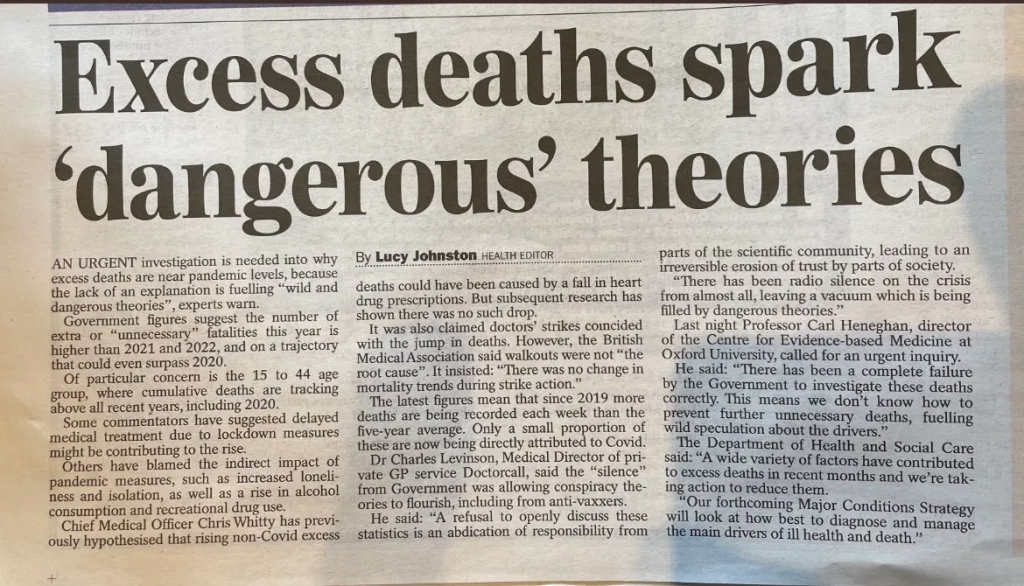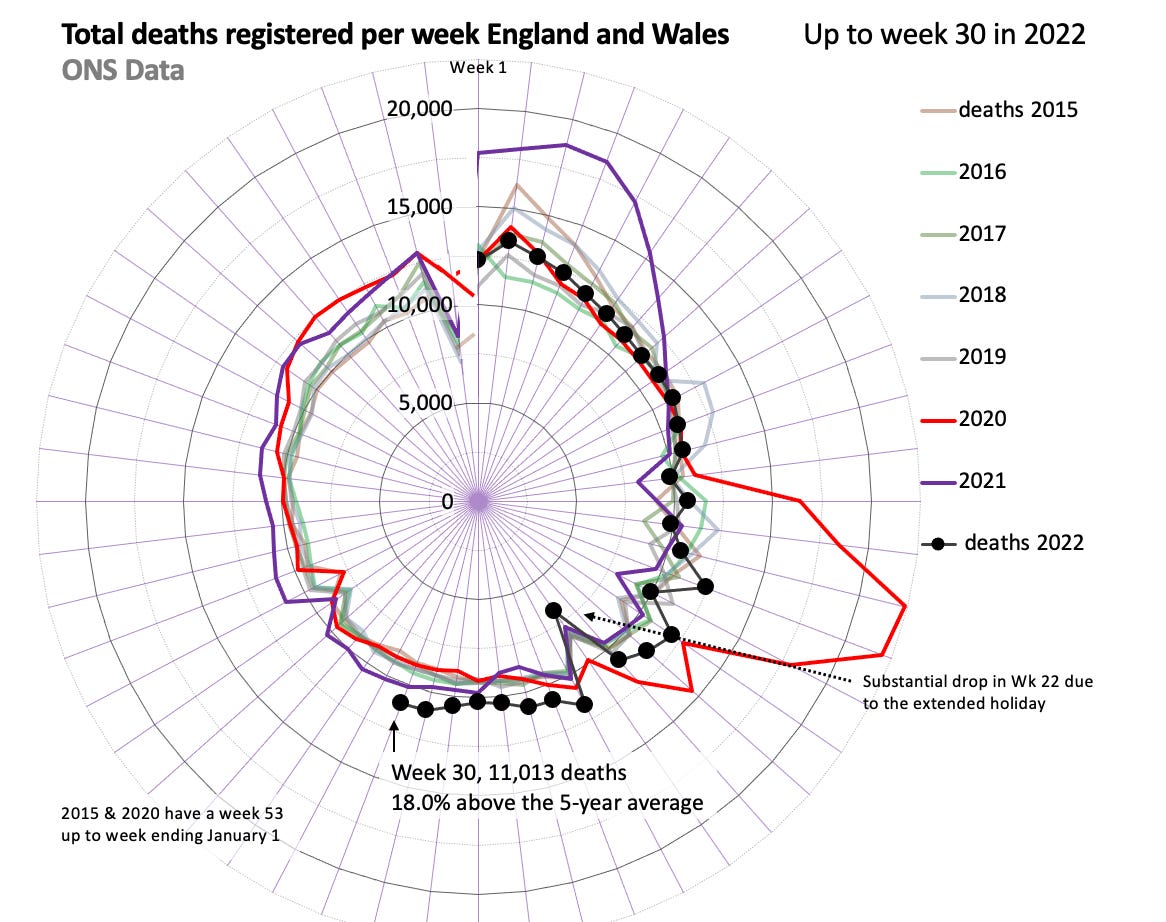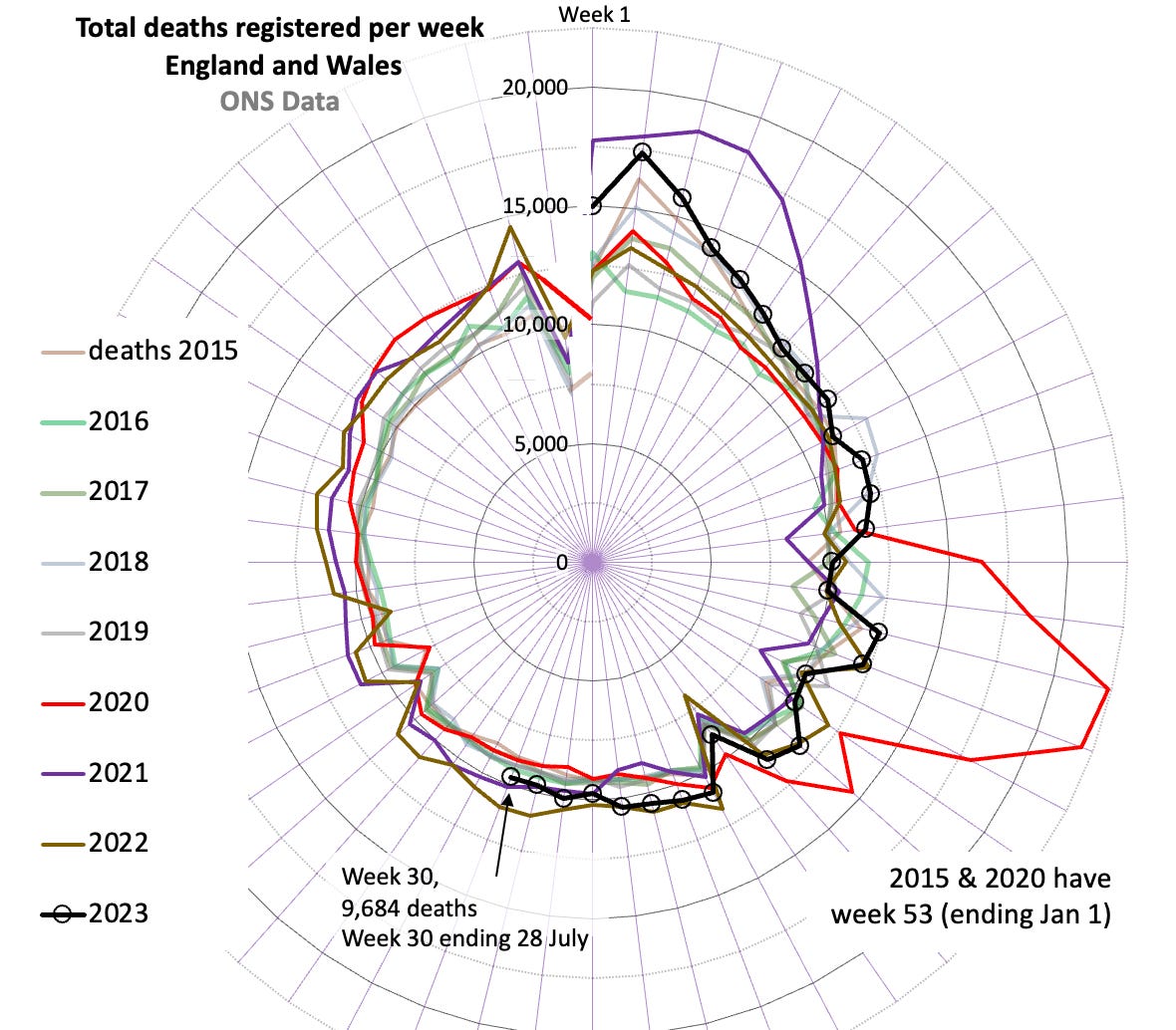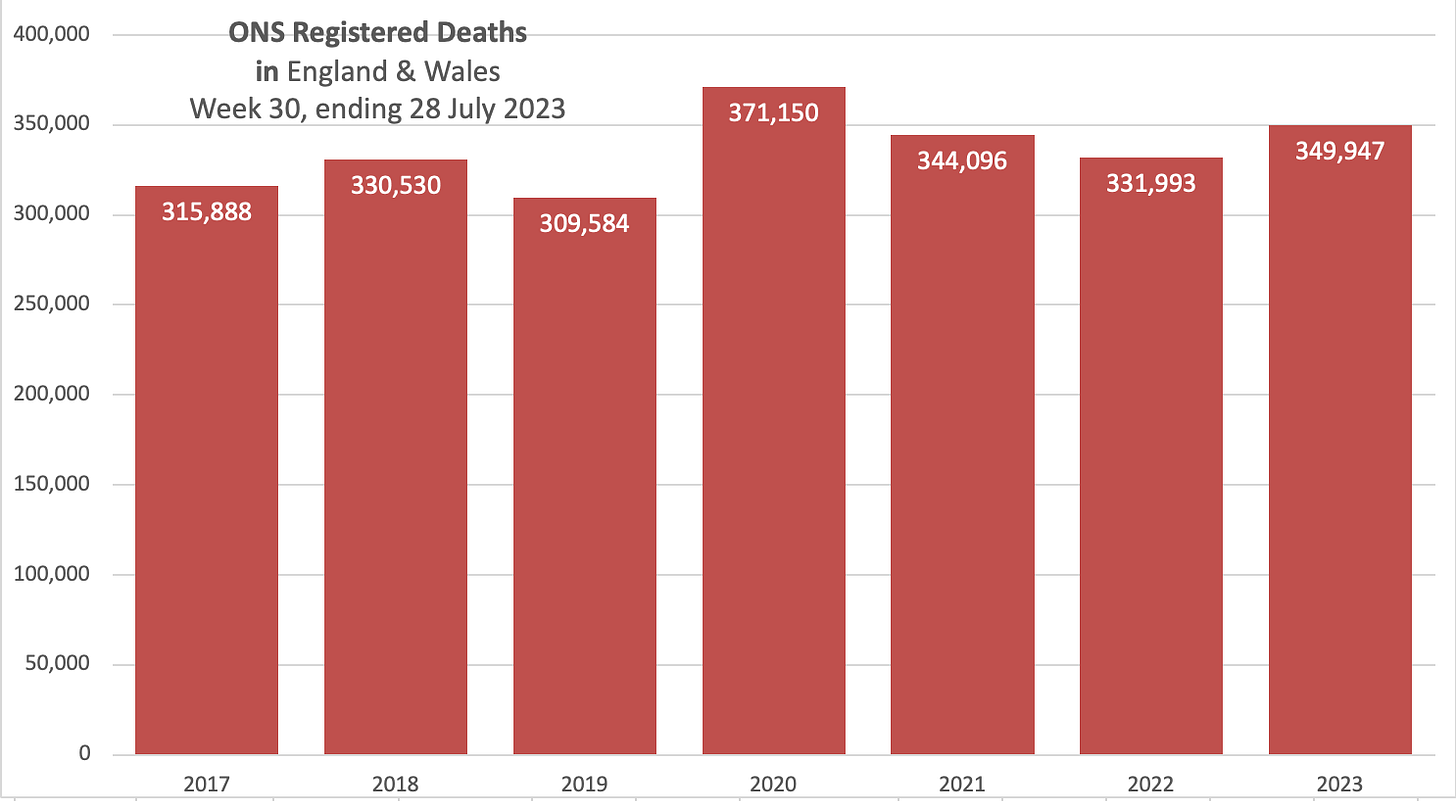Trust the Evidence | 9 Aug 2023

Nothing in the intervening year has changed our view – an investigation is warranted.
Just before we stood down for the summer break Lucy Johnstone of the Sunday Express published on excess deaths in 2023 and the lack of an investigation to determine the drivers. We got the usual abuse, but as we said, it won’t deter us from analysing the data.
We began Trust the Evidence a year ago today, reporting on ONS-registered deaths in England and Wales. Deaths had been above average for most of the last three months. In the week ending 29 July 2022, there were 11,013 deaths – 18% above the five-year average.

In the latest ONS data, out today, for week 30 of 2023. 9,684 deaths were registered in England and Wales; 63 mentioned Covid.

The total number of deaths in 2023 is roughly 21,000 fewer than in 2020. However, it’s worth noting the difference compared with last year when we became concerned about excess deaths – there are roughly 18,000 more deaths than this time last year. Deaths in 2022 and 2023 have both been trending higher than in 2020, apart from the 7 weeks in March/April that we’ll write about in our next post on counting deaths

Here is what we reported a year ago:
“However, we are not aware that the causes for the variations identified have been investigated, nor that there is a recognised threshold to trigger such an investigation. This suggests a lack of interest and begs the question of why such data are collected in the first place. Nevertheless, the signals in the data suggest something is not quite right.”
In August, we listed eight non-mutually exclusive causes that require investigating. We’re not sorry for repeating this message.
- Consequences of inadequate treatment and care received during periods of restrictions.
- Consequences of inadequate treatment and care received during periods of restrictions, especially for chronic conditions or evolving serious diseases such as cancer with a natural history of fatality.
- Increased cardiovascular risk due to sedentary lifestyles and increased food and alcohol consumption.
- Impact of the pandemic on NHS staffing levels, fatigue and other structural consequences emerging during the summer months.
- Lack of access to emergency services.
- Lack of timely access to emergency services (we wrote in Spiked about delays in urgent care causing needless deaths).
- Lack of access to primary, community and preventive care (the UK’s DHSC reports the pandemic led to ‘missing’ primary care appointments and referrals).
- An unknown or unforeseen cause.
Nothing in the intervening year has changed our view – an investigation is warranted, and we are left wondering what the trigger for such an investigation might be.
The UK Government, however, has made it clear – it does not want to investigate excess mortality causes.


